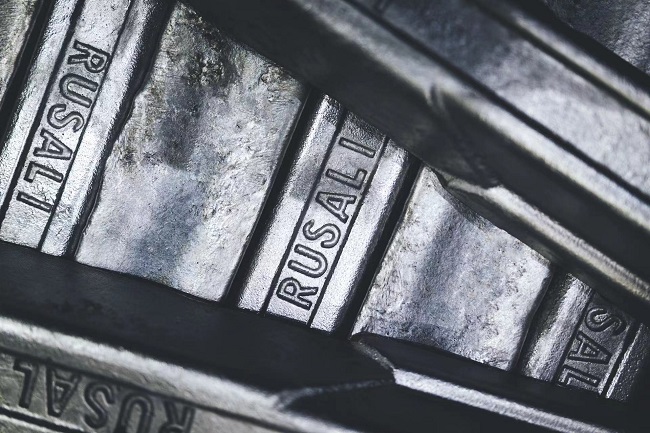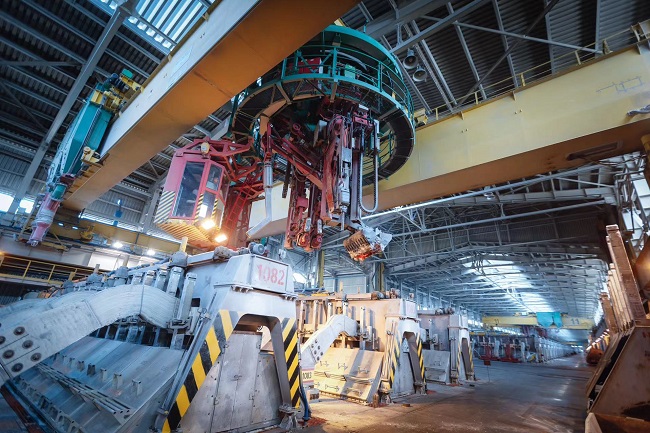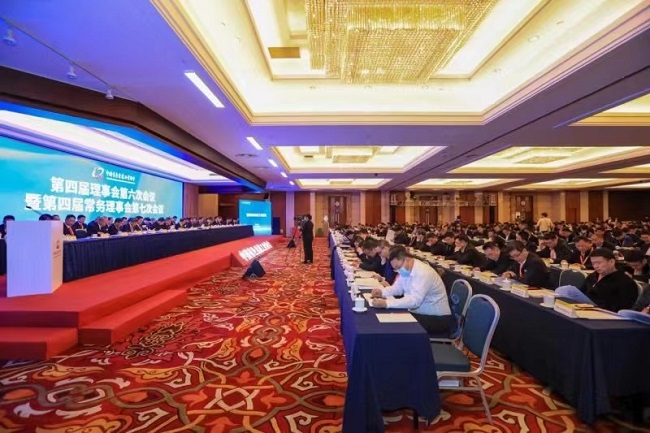Green agenda becomes a reflection of deepening cooperation between China and Russia
On May 16-17, Vladimir Putin has paid an official visit to the People's Republic of China. The trip became Putin's first foreign visit since his inauguration. The leaders of China and Russia have discussed the current state of cooperation between China and Russia on the international arena and prospects for its development. The visit was to bring these relations to a new stage of overall partnership and strategic cooperation.
In 2023, the trade volume between China and Russia reached a record high of $240.11 billion, increasing by 26.3 percent. Chinese exports to Russia grew by 46.9 percent to almost $110.97 billion while import of Russian products into China also increased by 12.7 percent to $129.14 billion. Russia is uniquely positioned as the source of technology, all major resources as well as a transportation and logistics hub, while China is the world's leading consumer market and the emerging leader in a variety of sectors – from IT and machinery to automobiles and construction.
One of the most important aspects of mutual interaction between China and Russia is the shift to a green energy. China is set to become the leading provider of green and low-carbon energy worldwide. China's environmental agenda prioritizes the reduction of carbon emissions. In 2020, Chinese government declared the goals to peak emissions by 2030 and achieve carbon neutrality by 2060, shaping the country's environmental policies and corporate strategies.
For their part, Russian companies are boosting their sales to China with energy and resource sectors leading the gains as they work on several large-scale projects meant to elevate the two countries' economic cooperation. As the largest producer of primary aluminum outside of China and the world's leading producer of low-carbon aluminum, RUSAL actively promotes green technologies and contributes to the sustainable development of the metal industry. RUSAL not only keeps moving towards carbon neutrality itself, but also does its utmost to assist the partners in achieving their decarbonization goals. China is one of the key markets for RUSAL, and in 2023, China became the first country to test the primary aluminum with the lowest carbon footprint in the world ALLOW INERTA. It is manufactured by RUSAL using the revolutionary inert anode technology, which significantly reduces the level of greenhouse gas emissions during electrolysis. The solution cuts carbon dioxide emissions in Categories 1 and 2 (Scope 1&2) to 0.01 tons of CO2 per ton of aluminum (compared to the industry average 12.5 tons of CO2).

RUSAL production
RUSAL's other products, including alloys, also meet environmental standards. For instance, recently the company announced production of Primary Equivalent Foundry Alloys (PEFA) with 25-30 percent of recycled content for customers from the automotive industry. The new product is in full alignment with OEM requirements meeting both the need for low-carbon footprint, and recycled content. At the beginning of 2024, RUSAL also expanded aluminum recycling initiatives and delivered the first batch of rolling slabs with recycled content. This marks a significant milestone for RUSAL, aligning with its commitment to expand the use of recycled aluminum products, a key aspect of the company's Sustainable Development Strategy.
RUSAL's Shanghai subsidiary became a member company of the standing council of China Non-ferrous Metals Industry Association. It is worth mentioning that the company is the first foreign-invested enterprise to become a member of CNIA's standing council, which means RUSAL has built up even closer ties with China non-ferrous metals industry. Being a member of the association, RUSAL is working in cooperation with other enterprises and institutions on the goal of developing the industry with global influence, adhering to the purpose of serving the government and the business. Since entering China, RUSAL has focused on delivering high-quality, low-carbon aluminum directly to end-users and strives to provide excellent service.

Boguchansky aluminium smelter (BoAZ)
For now RUSAL has built up a diversified and sizeable customer base, including top tie aluminum fabrication enterprises to supply aluminum products to new energy vehicles, packaging, and electronic products. The industries listed above are growing dynamically in China and the demand for aluminum for the production of their components is also growing. At the same time, the interest in environmentally friendly technologies and the desire to reduce carbon dioxide emissions are contributing to the flourishing of these industries in the Chinese economy.
In conclusion, the deepening economic ties between China and Russia, highlighted by the record trade volume in 2023, underscore the strategic partnership between the two nations. The shift towards green energy and sustainable practices, exemplified by RUSAL's innovative technologies and commitment to carbon neutrality, not only reflects the evolving environmental priorities of both countries but also sets a positive trajectory for their collaborative efforts in fostering environmentally friendly initiatives.

RUSAL obtains the membership in the 4th Council and Executive Council Meeting of China Nonferrous Metals Industry Association (CNIA).








